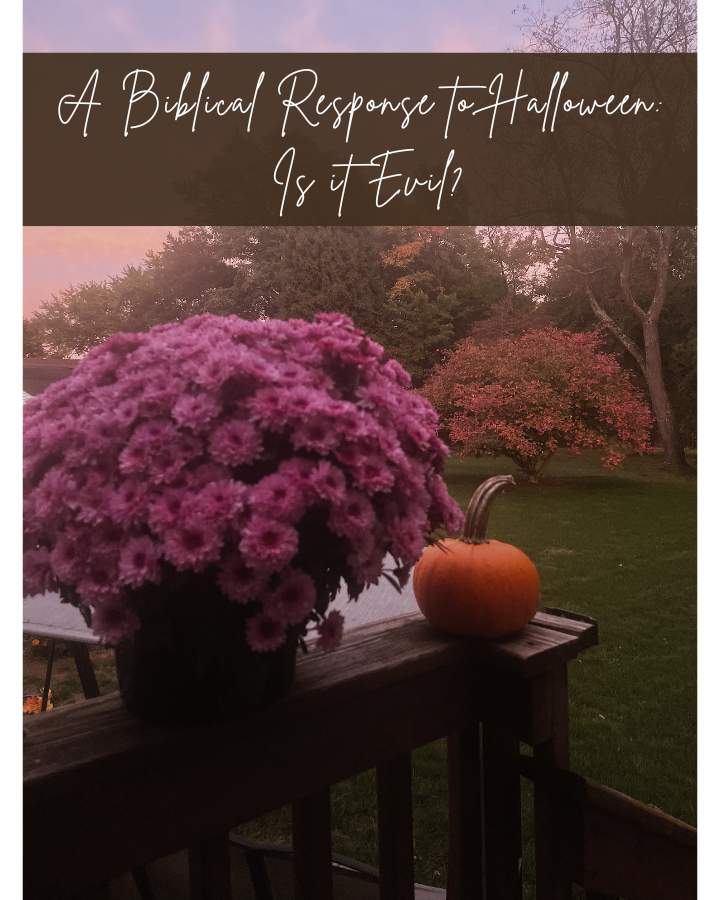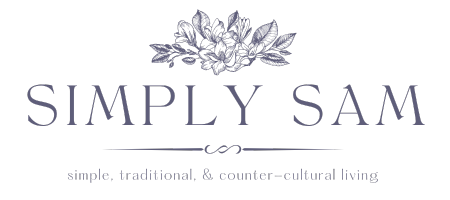What is the correct Biblical response to Halloween- Is it evil? Or is it an innocent holiday that Christians can redeem for God’s glory?

There are many things that divide the Church. Especially in recent times when it seems like there are polarizing views for every topic out there. Many of them are black and white in the Bible, while others aren’t as clear. Halloween is one of these divisive issues. The Bible explicitly talks about things like evil, witchcraft, Satan, darkness, and false worship, but it doesn’t explicitly talk about Halloween itself. So, what is the Biblical response to Halloween? Is it evil? Or is it an innocent holiday?
Before we dive in, let’s take a look at a quote from Anton LaVey, the founder of the church of Satan and the author of the satanic bible. He said, “I’m glad that Christian parents let their children worship the devil at least one night out of the year.” While you read the information I’m about to give about Halloween and its history, just remember this quote. Think about the fact that Satanists see October 31st as a Satanic holiday. Do with that what you will. Now, let’s dive in to Halloween.
The History of Halloween- the celts
The traditions of Halloween date back to the ancient Celtic festival of Samhain. Samhain is a pagan religious festival of ancient Celtic spiritual tradition. It was celebrated from October 31 to November 1 to harvest and usher in death and the dark half of the year. The Celts believed that the barriers between the physical and spiritual worlds broke down during these days, which allowed humans to interact with spirits. They would light large fires to burn crops and make animal sacrifices to the Celtic deities.
Many people believed that the spirits remained roaming around Earth until they received a suitable treat. If they didn’t receive that treat they would trick the people who neglected them into giving them one. Some believed that disguising themselves as a spirit by wearing a grotesque costume would trick the spirits. They did this in hopes that the spirit wouldn’t recognize them as human and beg them for a treat. It was also believed that carving grotesque images and placing a candle into gourds or root vegetables would ward off the evil spirits.
the history of halloween- the romans
The Roman Empire had conquered most of the Celtic territory by 43 AD. With that, two Roman festivals merged with Samhain. The first was Feralia, a festival in late October that celebrated the passing of the dead, and the second was a day to honor Pomona, the Roman goddess of fruit and trees. (Her symbol was the apple which leads people to believe this is where the apple bobbing tradition originated from).
Pope Boniface IV dedicated the Pantheon in Rome in honor of all Christian martyrs on May 13, 609 AD. The Western church created a Catholic feast for All Martyrs Day and it later came to include all saints as well. In 1000 AD, the church made November 2 All Souls’ Day to honor the dead. Many today believe that the creation of this holiday was an attempt to replace the Celtic Samhain festival with a day dedicated to the Christian church and Christian God. However, All Souls’ Day was celebrated in much the same way as the Samhain festival. They had large bonfires and parades, and people dressed up in costumes as saints, angels, and devils.
what is halloween now
You don’t really need to look at the history of Halloween to know what it is and what it celebrates. I think the origins of Halloween matter less than looking at what Halloween has become. If you don’t celebrate something because it has “Pagan” origins, then there’s a lot of things you won’t be celebrating.
If you take one look around your neighborhood or local stores during October, it is obvious what Halloween celebrates. No matter how innocent your reasonings are behind celebrating Halloween, it doesn’t change the fact that the holiday itself celebrates and glorifies ghosts, witches, monsters, and death. As Christians, these are things that God clearly tells us to stay away from.
the biblical response to halloween
The Bible doesn’t directly instruct Christians on what to do in regards to Halloween, but it does have clear instructions on how to deal with the things Halloween is associated with and glorifies.
“For we do not wrestle against flesh and blood, but against the rulers, against the authorities, against the cosmic powers over this present darkness, against the spiritual forces of evil in the heavenly places. Therefore take up the whole armor of God, that you may be able to withstand in the evil day, and having done all, to stand firm. Stand therefore, having fastened on the belt of truth, and having put on the breastplate of righteousness, and, as shoes for your feet, having put on the readiness given by the gospel of peace.” -Ephesians 6:12-15
Humans do not cause the evil acts we see in this world. They’re caused by the forces of evil that entered the world after the fall of man. Sometimes these evil acts aren’t recognized as evil. People rarely see things like abortion and the praise of homosexuality as evil. But evil is the absence of good, and something can only be good if it aligns with God’s design for the earth.
On the other hand, there are things that everyone knows are evil. These are things like murder, ghosts, demons, witches, and monsters. Whether or not people abstain from these things is one thing. But pretty much everyone is aware of their evil connotation. Just look to children. Kids fear evil before they even know what it is. Halloween promotes these things, yet many Christians see no problem with the holiday. They may celebrate Halloween without the gore and witchcraft, but they still can’t separate the holiday from society’s overall understanding of what it entails. But the Bible is clear when it tells us to stay far away from these things. We are instead to stand firm in God and put on the belt of truth, the breastplate of righteousness, and the readiness given by the gospel.
“Finally, brothers, whatever is true, whatever is honorable, whatever is just, whatever is pure, whatever is lovely, whatever is commendable, if there is any excellence, if there is anything worthy of praise, think about these things.” -Philippians 4:8
Similarly, the Bible is clear when it tells us the things to focus on. We are to mediate on whatever is true, honorable, just, pure, lovely, commendable, excellent, and worthy of praise. In other words, we are to meditate on the things that God loves and sees as good. If you know anything about the nature of God, it would be hard to imagine that He would see Halloween as being good and lovely. Let alone filled with truth, honor, purity, and praise.
“For you are not a God who delights in wickedness; evil may not dwell with you.” -Psalm 5:4
Making that last point even more clear, Psalm 5 directly states that God does not delight in wickedness. Halloween is associated with all sorts of wickedness, so it only makes sense that God would not delight in it either.
“Take no part in the unfruitful works of darkness, but instead expose them.” -Ephesians 5:11
Not only are we told to avoid darkness, we are also called to expose it. How do we do this? In general terms, you expose darkness with light. So, Christians are to expose darkness by shining God’s light onto the world. One way we can do this during Halloween is by not celebrating it in the ways the world does. This will draw attention to the differences between Christians and the world. We are not set apart if we celebrate Halloween in the same ways the World does. Instead of trick-or-treating, have a family or church harvest dinner with no costumes. Set yourself apart from the world so that opportunities arise for you to share the Gospel.
“Woe to those who call evil good and good evil, who put darkness for light and light for darkness, who put bitter for sweet and sweet for bitter!” -Isaiah 5:20
Lastly, it brings God great sadness when His people replace good for evil and evil for good. When they delight in the very things He calls evil, and lament in the very things He calls good. This should bring us great sadness as well.
While I think Christians must stay away from the evil things associated with Halloween, I think that their participation in the seasonal celebrations comes down to conviction. Some Christians don’t want to participate in anything associated with autumn because it comes too close to celebrating Halloween. That’s perfectly fine. Others love autumn and love having cozy family dinners, decorating for fall, and going to pumpkin patches and corn mazes. That’s perfectly fine as well. When it comes to those things, things that aren’t directly advised against in Scripture, it comes down to the individual and their personal conviction. We don’t have a right to tell someone how to celebrate Autumn, and we must respect their conviction if its different than ours.
an opportunity for evangelism
I also think it’s important to note how good of an opportunity Halloween brings for evangelism. Hundreds of children and families may be coming to your door that night. Why not take advantage of that by sharing the Gospel with them in some way. Christianbook has a ton of Halloween tracts that you could buy and give kids with their candy. Or, if you aren’t convicted to skip trick-or-treating, have your kids share the gospel in some way at every home. Be a light on a day filled with darkness.
If you made it this far, thank you for reading and I hope you learned something. Let me know what you think the correct Biblical response to Halloween is, and how you celebrate the autumn season. Keep your eyes out in the next week for my follow up to this post. I plan to share some more of my own opinions on the topic of Halloween with you instead of the history and Scriptures associated with it. In the meantime, head over to Got Questions to learn more about Halloween and the things associated with it. Thanks for reading!
